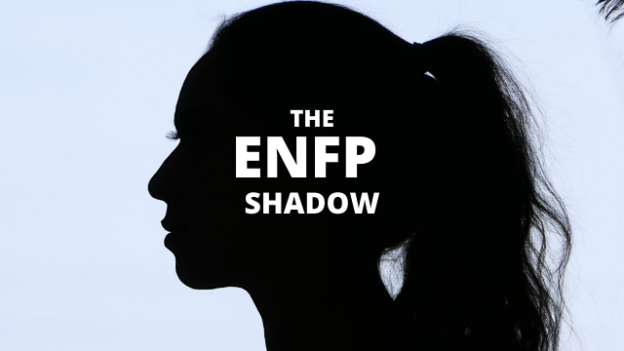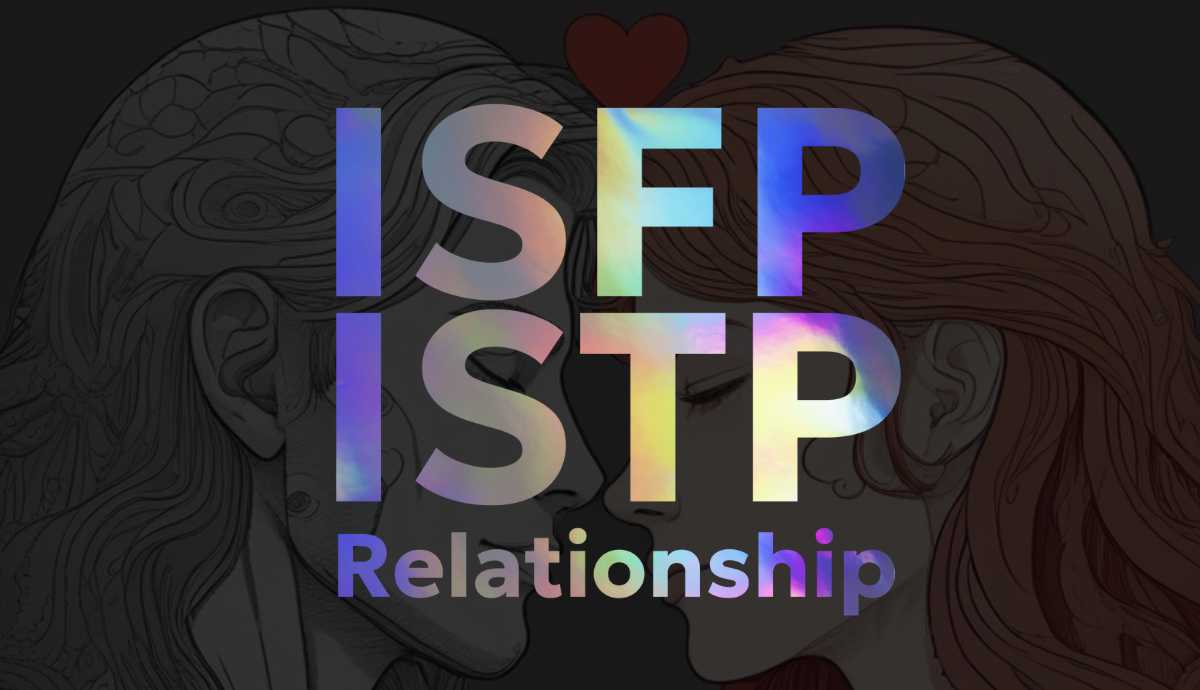ENFPs are described as warmly enthusiastic, imaginative and insightful. They open themselves to possibilities and are strongly driven to create a unique identity while pursuing a life that is meaningful and creatively fulfilling. However, as with the other 16 MBTI types, there is a shadow side to the ENFP.
The shadow is a concept introduced by Carl Jung and represents the unconscious attitudes and the repressed, unwanted elements of our psyche that are alienated from the conscious ego. Jung regarded the inferior function as being the gateway to the shadow as it is linked to areas of our personalities that are a source of negative emotion, insecurity, bad decisions and embarrassment. When our shadow is in control, we do things that we don’t even recognize.
When we are able to look back at actions we took while under the grip of the shadow, we are likely to say to ourselves something like, “I can’t believe I did that!”, or “What was I thinking?” Although each MBTI type consists of four cognitive functions, these only constitute the conscious ego. MBTI theorists believe that the other 4 functions are relegated to the unconscious shadow.
Although these shadow functions are largely ignored and not recognized as part of the conscious ego complex, they nonetheless come into play and it is often under stressful circumstances. For ENFP, these shadow functions are Ni, Fe, Ti and Se and constitute the INFJ personality type. Here is a look at how the ENFP shadow functions play out.
ENFP 5th Function: Ni Opposing
ENFPs lead with their Ne perspective which encompasses a taste for novelty and a penchant for popping out plenty of creative ideas. ENFP’s Ni Opposing emerges as a response to their Ne openness to a variety of possibilities being obstructed or opposed. ENFPs then use an Ni perspective to defend their Ne perspective. They do this by arguing against their opposition for what they believe will be the negative consequences of blocking ENFP’s ideas.
They may, for example, give an ultimatum to force their opposition to either comply with their wishes or ENFP will take their ball and go home. ENFP can become stubborn and double down with regards to creative decisions. When they have the leverage to do so, ENFPs are willing to play hard ball to get their way, because they can envision the regret and disappointment they would feel if they do otherwise.
ENFP 6th Function: Fe Critical Parent.
ENFPs have auxiliary Fi which means they consult their own moral compass and personal values to guide their decisions. They are not easily swayed or influenced by popular opinions and would rather exercise their individuality than toe the line like a good little conformist. This is not to say that they are not team players however. ENFPs enjoy people and can be very loyal and supportive contributors to any group they are a part of. ENFP’s Fe critical Parent emerges in response to being criticized for perhaps being too much of a maverick and not enough of a team player.
It is a reaction to feeling shamed or blamed by others for not conforming to group standards as though the rules don’t apply to them. The conceit is that much of this may be ENFP projecting their own guilty conscience onto others. ENFPs can feel limited by group standards and responsibilities to others and feel some guilt when they neglect or disrupt group harmony and cohesion by pursuing their self interests. They may in turn try to exercise moral authority by criticizing others for their social misbehavior..
ENFP 7th Function: Ti Trickster.
ENFPs have tertiary Te which means they like to employ some degree of organization and systematization in the way they approach tasks and objectives. ENFPs however, may experience feelings of being double-bound or backed into a corner by way of someone else’s use of Ti logic. When ENFPs get their logic exposed as being unsound, irrational and inconsistent, they may feel trapped.
They may feel they are being subjected to inconvenient things that they don’t want to hear which subsequently compels them to rebel and lash out in immature fashion. Rather than admit or acknowledge any error, ENFPs may instead opt to do damage control and attempt to save face. They may do this by turning the tables on the other person to trap them with underhanded and sarcastic Ti logic.
ENFP 8th Function: Se Demon.
Lastly, we have ENFP’s 8th function, Se Demon. Se Demon manifests in response to feelings of inadequacy experienced through their inferior introverted Sensing. Examples of this may include a failure in their command of facts and data, forgetting scheduled events and commitments, overlooking important details, having their reputation damaged, and failing to perform designated tasks and duties. These inferior function fails can take a toll on the self worth of their Ne hero to which their inferior Si is linked. This can give rise to Se Demon overcompensating for their Si ineptitude.
Se Demon manifests as a fear and paranoia about current reality. This brings about an effort to demonstrate mastery over their use of tools and handling of situations as they emerge. Although this can make ENFP more hands on and engaged with reality, Se Demon can lead to reckless behavior and self-sabotage. ENFP may increase their activity level just to feel like they are accomplishing something and take on more than they can realistically handle. They may become extra vigilant, highly distractible, and hypersensitive to everything going on around them.
related posts:
- ENFP Explained; What It Means to be the ENFP Personality Type
- ENFP Weaknesses: 7 Struggles of Being ENFP
- 35 ENFP Traits That Confirm You Are One
- 6 Great ENFP Careers That Pay Well
- 6 Reasons Why ENFP and INFJ Fall In Love
- 12 Shades of ENFP: MBTI & The Zodiac
- 6 Reasons Why INTJs Love ENFPs
- INTJ Shadow: The Dark Side of INTJ
- ISFP Shadow: The Dark Side of ISFP
- ISTP Shadow: The ISTP Dark Side
- INFP Shadow: The Dark Side of INFP
- ENTP Shadow: The Dark Side of ENTP
- INTP Shadow
- The Dark Side of the INFJ Personality
- The Shadow Ego of Each Myers Briggs Type
Want to know your astrology placements? You can generate your astrology chart here with our free birth chart generator tool.
- The 8 Cognitive Functions Explained - May 17, 2025
- American Presidents Ranked By Zodiac Sign - January 20, 2025
- ESTP and ESFP in love: 6 Dynamics of Their Relationship - September 4, 2024








